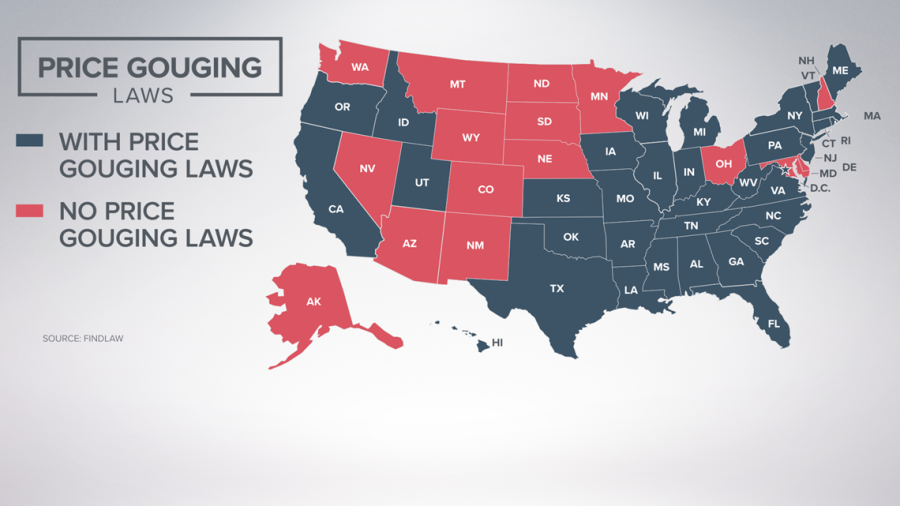The Three Reasons We Shouldn’t Price Gouge
Anti-Price Gouging laws are not as shiny as they appear to be: Watch out!
March 30, 2022
In Disney’s Aladdin, a merchant says, “Like so many things, it’s not the outside but what’s inside that counts.” This concept might have a shiny, beautiful, morally applaudable exterior, but its inside is far worse and more deplorable than it seems. Which is why- for these 3 reasons-anti-price gouging laws are not the correct response to inflation.
To begin, price gouging occurs when a seller increases the prices of products or services to a degree higher than is reasonable or fair. This specifically takes place during instances of natural disasters, when necessities are being bought at a higher rate. Companies might decide to illegally raise prices unfairly because people will buy them no matter how expensive. Many states such as Georgia and California have anti-price gouging laws; or laws that determine whether a company is raising prices too much.
While these laws might sound like a good thing, anti price gouging laws are good politics but bad economics. A leak in a gas pipeline in Alabama caused a gas shortage in several states, one of which we’re going to be focusing on. As we mentioned, Georgia has an anti-price gouging law. These laws, commonly employed by governors to stop price increases after natural disasters, make consumers happy but also stop markets from alleviating shortages. For another example, if a hurricane knocks out power to a large area, generators are likely to be in high demand. It certainly seems unfair for Home Depot to earn extra profits by raising the price of generators they already happen to have in stock in their local stores. Unfortunately, limiting price increases in a time of high demand removes the economic incentive that would motivate other people to bring in an additional supply of generators.
While this concept might make anti-price-gouging laws seem all cute and shiny, it’s the inside that counts. And inside of these laws lies a dark history of benefiting some, and hurting others. Anti-price gouging laws- especially in instances of inflation- are difficult to enforce because courts are incapable of deciphering the motives or reasons for companies to raise prices. Incredible price increases happen for a multitude of reasons. Artificially holding prices lower than it would take to balance supply and demand means that consumers lucky enough to buy some of the product in short supply get a better price than they would without the anti-price gouging law. At the same time, holding prices lower than the market clearing price means that supply will run out and some consumers will have to go without.
Even though the Georgia anti-price gouging law allows for some price increases, such as having to truck gasoline into the state when a pipeline is out of commission, companies and entrepreneurs are likely to be scared off by such laws. Nobody wants to be charged with price gouging, so the easy way out is to not take action to help solve the shortage. So laws like these benefit the few who still manage to secure the generator, gas, or hotel room, while simultaneously hurting all the consumers confined to going without. While the affirmative might be seen as doing something that is in favor of the people, others are being punished by being forced to go without instead of spending a little extra money. Price gouging might seem like a dark side of economics, but it is doing good by helping to efficiently allocate the limited supply available when a shortage exists and to encourage people to supply more of whatever consumers want.
For these three reasons, anti-price gouging laws are ineffective and damaging to not only our community, but the struggling people within our community as well.

